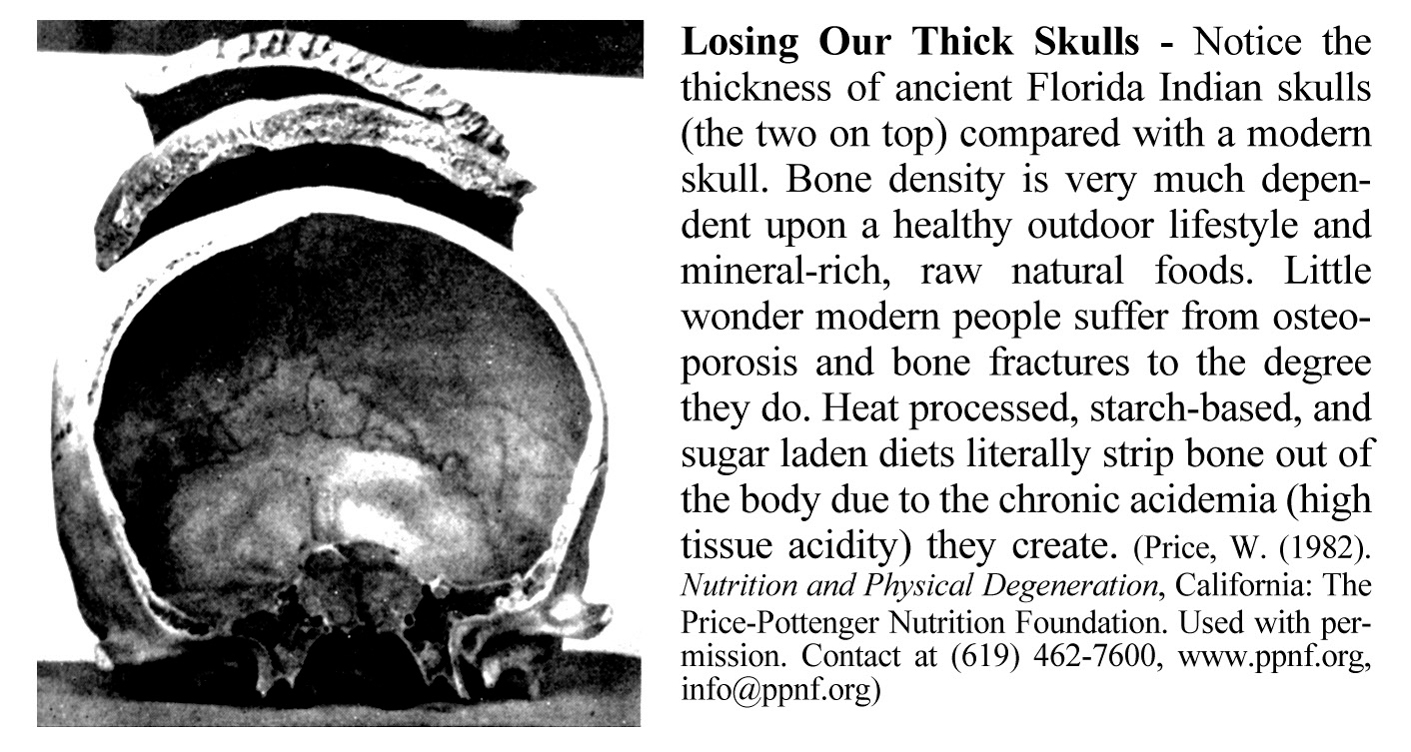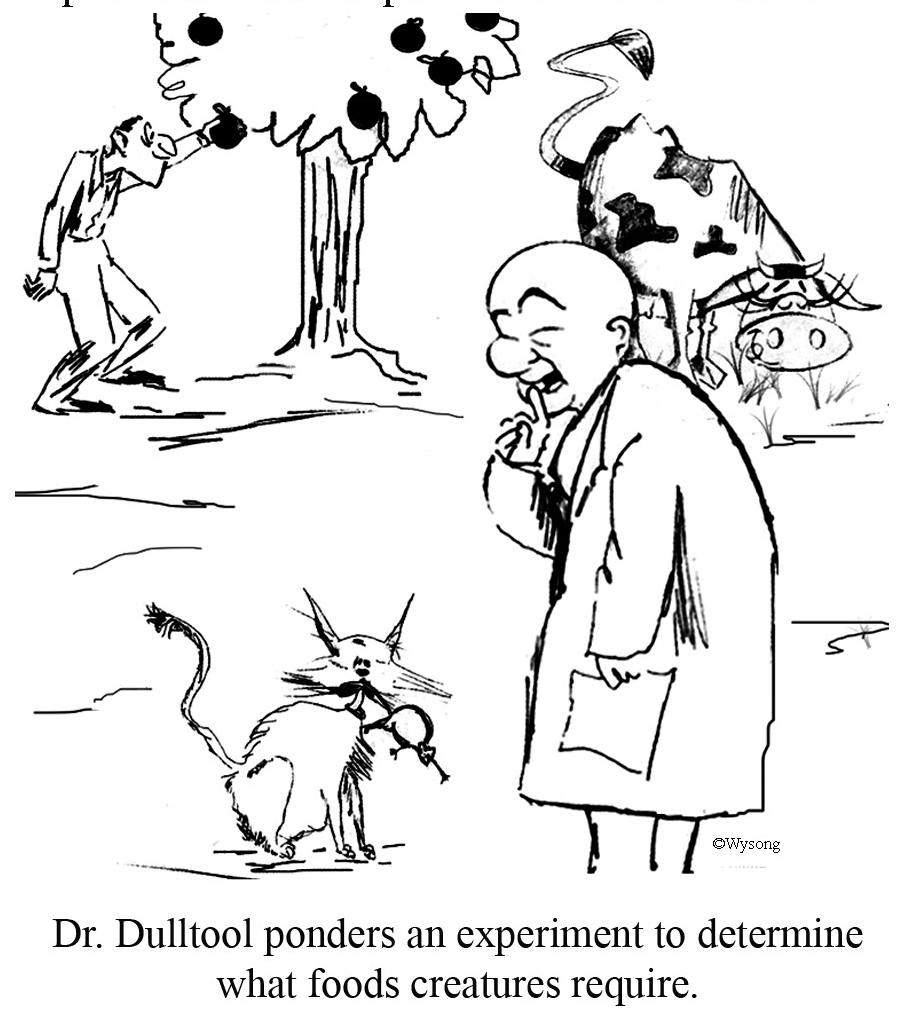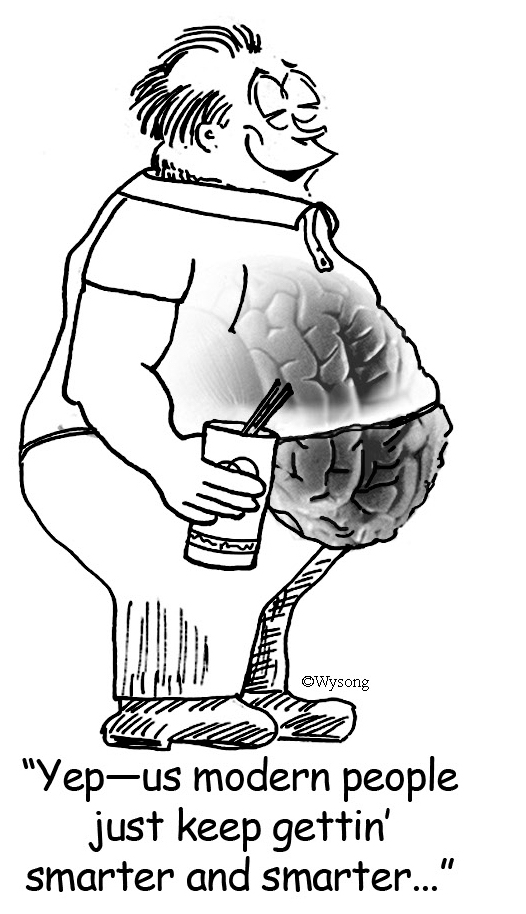Words of wisdom and miscellaneous facts by Dr. Wysong and others.
This is an accumulation over several decades and the accuracy cannot be attested to.
Wysong vs Nemos Bible Debate
COSMOLOGY LIES AS BIG AS THE UNIVERSE
⬇️ Click to scroll down to article
"We'll know our disinformation program is complete when everything the American public believes is false."
—William Casey CIA director 1981
The bigger the lie the greater its acceptance because people cannot believe authority figures would ignore reality.
To find truth we must hate the lie more than love accepted beliefs.
Fraud vitiates everything it touches. (common law maxim) Nudd v. Burrows (1875) 91 U.S. 416.
Fraud destroys the validity of everything into which it enters. Boyce's Executors v. Grundy (1830) 28 U.S. 210.
Fraud vitiates the most solemn contracts, documents and even judgments. United States v. Throckmorton (1878) 98 JU.S. 61.70.
FORWARD
The accepted cosmogony/cosmology (origin and nature of the universe) belief is:
—William Casey CIA director 1981
The bigger the lie the greater its acceptance because people cannot believe authority figures would ignore reality.
To find truth we must hate the lie more than love accepted beliefs.
Fraud vitiates everything it touches. (common law maxim) Nudd v. Burrows (1875) 91 U.S. 416.
Fraud destroys the validity of everything into which it enters. Boyce's Executors v. Grundy (1830) 28 U.S. 210.
Fraud vitiates the most solemn contracts, documents and even judgments. United States v. Throckmorton (1878) 98 JU.S. 61.70.
FORWARD
The accepted cosmogony/cosmology (origin and nature of the universe) belief is:
A Big Bang of nothing created an infinite meaningless universe containing atomic dust that gravitationally accreted into heavenly bodies including our Earthball moving in several different directions at 2.8 million mph and holding an atmosphere next to the vacuum of space while spontaneously forming life from primeval sludge that then evolved into complicated rocks called humans with no free will.
Long ago it became clear to me that the materialistic evolutionary part of that credo was false.
But I was on board with the cosmology part. After all, we see rocket ships going to and fro, there is a "Space Force," pictures of Earth and planets abound, astronauts float around and in the International Space Station, thousands of people and billions of dollars support it, and, of course, "all" the experts believe.
To question this is to be a conspiracy theorist, misinformationist, or even a lunatic. Oh my, we must, after all, follow the crowd.
The idea that we are being lied to about space didn't even enter my mind until a few months ago when what was left of my naive and trusting innocence had been totally demolished with the COVID-19 fraud.
We, the crowd, extend our trust to institutions charged with looking after our interests. But government, Big Medicine, education, media, industry, Big Tech, science, and NASA chase money, their own security, and even power over us.
That should not inspire confidence in beliefs they create, promote, protect with censorship, and even demand acceptance of.
If we want truth, we have to find it ourselves. To do that requires the opposite of trusting in others. It means sleuthing what the powers that be try to hide from us in internet archives, banned videos, censored "disinformation," and what "fact checkers" say isn't so.
Probing into the subject I was stunned to learn that:
That means unproven beliefs, stories, and even fakery are being passed off as science and truth.
This subject may seem inconsequential to everyday life. But that's only true if we aren't being lied to about it. If the truth is being hidden from us, we can be sure of one thing, it's not being done for our benefit.
Truth seekers learn that the scale and ostentatiousness of lies being fed to us means nothing can be tacitly trusted.
Everything of importance from government, media, industry, medicine, education, economics, science, history, religion, and popular society must be assumed to be false unless we prove otherwise by doing our homework and thinking critically.
This series will provide wake-up information to help you discover lies as big as the universe.
But I was on board with the cosmology part. After all, we see rocket ships going to and fro, there is a "Space Force," pictures of Earth and planets abound, astronauts float around and in the International Space Station, thousands of people and billions of dollars support it, and, of course, "all" the experts believe.
To question this is to be a conspiracy theorist, misinformationist, or even a lunatic. Oh my, we must, after all, follow the crowd.
The idea that we are being lied to about space didn't even enter my mind until a few months ago when what was left of my naive and trusting innocence had been totally demolished with the COVID-19 fraud.
We, the crowd, extend our trust to institutions charged with looking after our interests. But government, Big Medicine, education, media, industry, Big Tech, science, and NASA chase money, their own security, and even power over us.
That should not inspire confidence in beliefs they create, promote, protect with censorship, and even demand acceptance of.
If we want truth, we have to find it ourselves. To do that requires the opposite of trusting in others. It means sleuthing what the powers that be try to hide from us in internet archives, banned videos, censored "disinformation," and what "fact checkers" say isn't so.
Probing into the subject I was stunned to learn that:
| Nobody, including any scientist, can prove any aspect of the approved cosmogony/cosmology belief using experimentation and the scientific method. |
That means unproven beliefs, stories, and even fakery are being passed off as science and truth.
This subject may seem inconsequential to everyday life. But that's only true if we aren't being lied to about it. If the truth is being hidden from us, we can be sure of one thing, it's not being done for our benefit.
Truth seekers learn that the scale and ostentatiousness of lies being fed to us means nothing can be tacitly trusted.
Everything of importance from government, media, industry, medicine, education, economics, science, history, religion, and popular society must be assumed to be false unless we prove otherwise by doing our homework and thinking critically.
This series will provide wake-up information to help you discover lies as big as the universe.
"We'll know our disinformation program is complete when everything the American public believes is false."—William Casey CIA director 1981
"We know they are lying, they know they are lying, they know we know they are lying, we know they know we know they are lying, but they are still lying."—Aleksandr Solzhenitsyn
"We know they are lying, they know they are lying, they know we know they are lying, we know they know we know they are lying, but they are still lying."—Aleksandr Solzhenitsyn
|
12/24/2019
Click to enlarge, Ctrl + to enlarge further; Ctrl 0 to return to 100%
The thought of a creature, any creature, dying in order for people to eat is very unsettling for many. It is also puzzling that humans seem to be the only ones who make a fuss about it. Other creatures just eat what they are designed to eat and apparently never give it a second thought.
Vegetarianism is a choice many make because they feel that taking animal life is wrong. But how is it logically valid to assume that the life of a plant is of less merit than that of an animal? Plant and animal are mere words humans have devised. There is no such labeling in nature. The arbitrariness of the two categories particularly becomes apparent at the microscopic and biochemical levels where meaningful differences can be almost impossible to discern.¹ Evidence is also now in hand that plants have feelings, can communicate, and are perhaps sentient in their own unique way.² Just because plants don't have legs or a brain like ours does not justify an anthropomorphic moral distinction between them and animals.³ For example, starfish don't have a brain and yet are very social creatures—making them eerily like many people we know. The crisp categories and labels we impose on nature may make it appear like a tidy taxonomic department store, but that is not the reality. As science progresses it becomes more and more difficult to differentiate plant and animal. Nature, although apparently heterogeneous and divided by cell walls, plasma membranes, and skin, is inherently homogeneous and interlinked. We and every other creature are just eddies in the great river of life. Life is joined and blends within itself with symbiotic, commensal, parasitic, and predatory food chain relationships keeping nature in balance and intact.⁴
If one is of the opinion that the taking of life is immoral, accordingly, the taking of any life should be deemed immoral. How is it we humans get to decide which life is more valid than another? But taking life for food clearly cannot be immoral for that would make life itself immoral, since in order for any creature to live other creatures must die.
In nature there is a predatory hierarchy. Cows kill grass, lions kill zebras, and big fish kill little fish. If all creatures decided to contravene their nature and draw arbitrary lines about what to eat, or all decided to only eat vegetation, populations would grow unchecked, resulting in massive die-offs and ecological disaster. The web of life requires death at all levels. So attempting to moralize about food based upon which categories of life we decide to kill has little to do with logic or science, and everything to do with emotion, feelings, sentimentality, and anthropomorphism. Although humaneness and consideration for all life is important, so too is the ethic of human health. If we start with the premise that human life and health are to be respected and protected, certain ethical decisions follow. As discussed in the previous chapter, healthy food is that food we are designed to eat. It would therefore be unethical to refuse to eat a food we are designed to eat, thus causing our own disease, pain, suffering, and death. If we voluntarily choose the wrong foods (even if motivated by an ethic we devise) and cause the protracted suffering from a disease like cancer, for example, how is that not unethical as well? In other words, we can choose the ethic of sparing the life of a food animal, or we can choose the ethic of preventing disease, suffering, and death of humans.
If human health and life is the primary objective, the most critical ethical issue is determining what we are genetically designed to eat. In our early history, humans were opportunists. We would hunt, as well as scavenge animal remains killed by carnivores. No ancient civilization was absent animal foods. Even primates, formerly believed to be strict vegetarians, occasionally engage in carnivorism and cannibalism. Humans lost in the wild, surrounded by vegetation, will even cannibalize.
Only when animal foods were exhausted did our ancient forebears resort to plant foods as a staple. Strictly vegan diets (no meats, eggs, or dairy) have only been possible since the Agricultural Age. With the invention of the plow (probably the pivotal invention converting nomads to farming communities), stone mill, and bake oven, inedible and toxic raw grains became a mainstay. If the population of prey animals had grown to keep pace with human population, farming and grain production might never have occurred. If it had, it would have been in condiment measure, not as a staple. Veganism is not the archetypal and healthy model. Hunting and scavenging is.⁵ Our present Agricultural/Industrial Age represents a miniscule portion of the 550-mile long time-line of life. It is only because of the burgeoning human population and its decimation of natural prey food sources that agriculture and processing became necessary. Agriculture is not the natural order. It is an artificial manipulation of nature in order to accommodate swelling societies with grain-based foods.⁶ A vegetarian diet of rice, bread, granola, and the like would never be possible in the wild absent fire and technology. No other creature on the planet bakes or microwaves their food. Humans not only do this, but then assume that it is the natural and healthy way to eat—as if Mother Nature had it all wrong and we have fixed her with our fancy processing machines and agribusiness. It is an experiment that has had disastrous effects for those who do not understand how a vegan/vegetarian diet must be carefully orchestrated. For example, a young couple fed their infant a diet of soy milk and apple juice. At six weeks of age it weighed only three and a half pounds and died of malnutrition. The parents were sentenced to life in prison. This makes it painfully clear that we do not get to do with our diets whatever we please—regardless of our good intentions—without consequences.⁷ This is not to say that vegetables (by vegetables I mean any non-animal or non-fruit product) are not nutritious to some degree. They are just not what we are best adapted to as a mainstay. To make our diet predominantly foods we could never find in the wild, or digest if not processed, is at best a risky experiment.⁸ Nevertheless, even doctors, nutritionists and governmental agencies—who should know better—promote unnatural foods as natural and even place them as the predominant food in nutrition pyramids. Notice how grain-based products are featured in these models. The results of this illogic are manifest everywhere today, from rampant obesity to every imaginable degenerative disease condition. The reason our modern processed food experiment fails is three-fold: 1. Raw animal products contain a variety of essential nutrients not found in vegetation. 2. Heat processing any food diminishes its nutritional value and produces a host of toxins. 3. In order to replace the concentrated calories of animal food, addicting grains and sugars have become the mainstay, resulting in a carbohydrate load human bodies were never designed for.
Hunger solves the question of what we should eat. As mentioned previously, with a family to feed and with the energy demands of an in-the-wild existence, humans would not focus on lettuce, a few seeds, or seasonal berries while ignoring concentrated food sources such as rabbits, fish, and deer. With survival at stake, we would forget the luxury of devised principle, and eat whatever we could find or catch, particularly that which was energy-dense and digestible.
Arguments about stomach size, length of the intestinal tract, construction of dental arcade, food transit time, and the ability or inability to synthesize various vitamins are all interesting in the debate about whether humans are carnivores, omnivores, or vegetarians. But these polemics do not cut to the chase: what would we eat, what could we eat if turned loose in the wild and faced with survival? The answer to that simple question tells us precisely what we are designed to eat. Incidentally, no modern human has ever survived for any length of time if lost in the wild without eating other creatures, including some unthinkables such as bugs, grubs, worms, and maggots. Research shows that hunter-gatherers ate (as a percentage of total energy consumed) as much as 35% protein, 58% fat, and as little as 22% carbohydrates. They ate the entire edible portion of a carcass (no carbohydrates there at all, except some glycogen in the liver and possibly the tongue and kidney). Plants consumed, in order from most to least, were: fruits, seeds, nuts, tubers-roots-bulbs, and then the leaves-flowers-gums of miscellaneous plant parts. Of 226 hunter-gatherer societies studied and reported in the Ethnographic Atlas, 133 derived at least 2/3 of their subsistence from animal foods. None were largely or entirely dependent upon gathered plant foods. Hunter-gatherers were found to only eat cereal grains as a last resort if in a state of starvation. Yet grains in their many processed manifestations are the most common food today. Compare the percentages above with current U.S. eating patterns and 'recommended' healthy diet touted by the experts: protein 15%, fat 30%, and carbohydrates 55%.⁹
It is of no small importance that societies and animals on raw natural meat-based diets are virtually free of chronic degenerative diseases (heart disease, cancer, obesity, arthritis, diabetes, etc.). In contrast, we experience them as an epidemic in direct proportion to our grain-based agriculture. In other words, the proof is in the pudding (complete with sugar, colors, preservatives and artificial flavors).
Put simply, if long-term health is the objective, raw natural foods must be a significant part of the human diet. If health is not the objective, then any food choice that fits one's arbitrary ethical fancy would be fine. Arguing for vegetarianism because of one's compassion is one thing. Insisting that it is healthier than meat eating requires that logic and a lot of evidence be ignored. All the shortfalls of meat eating commonly cited are related to processing, agricultural practices, and over consumption, not of the diet itself. For example, it is not the cholesterol found in animal products that is detrimental to health, but rather the processed oxidized form of cholesterol that plays havoc on health. The processed form of cholesterol is toxic in that it causes free-radical pathology to various tissues. The result is cancer, atherosclerosis, and the host of other degenerative conditions. Cholesterol in raw natural food is not oxidized and is a beneficial nutrient. If we do not consume it, the body produces it since it is the starting point for the synthesis of hormones essential to life. Also, farmed and grain-fed meat tainted with antibiotics, pesticides, and herbicides is unnatural and unhealthy. But the perversion of meat foods by human intervention does not deny their healthfulness in the raw wild state. In spite of the compelling arguments that we are omnivores, killing animals for food is troublesome for many people, including me. It's as though our bodies, our biology, are of this world, but our psyche and our ethical sensibilities are from somewhere else. What possible survival value is there in having an aversion to foods we are designed to eat? (This paradox is addressed further in Solving the Big Questions.) Even if it does not make sense from a nutritional, health, and biological perspective, vegetarianism and veganism are to be respected for the sensitivity to life they represent. Such sensitivity is much better than a dominionist predatory attitude where killing is recreation, and marauding the Earth's resources to exhaustion is considered a right. Regardless of how we choose to eat, conscience can always be exercised. For example, one can use animal products that do not result in the death of the animal, such as dairy and eggs. More vegetables, fruits, and nuts can be used thus sparing more animals. By using organic and free-range products, not only are we supporting more humane farming practices, the animals so raised are healthier, less stressed, and produce healthier food. We could also eat less and by so doing improve health, increase longevity, and decrease the demand on animal food production. Killing creatures in order to survive is one thing, killing them to support gluttonous eating is quite another. Each of us must keep in mind the carbon footprint we place on Earth. Any food we eat and do not need is not a matter of our 'right,' nor is it innocent recreation. Fields have to be planted, animals raised in pens and slaughtered, herbicides and pesticides sprayed, trucks put on the road, fuel consumed, exhaust produced, and stores built just to support such excess eating. A single person can consume tons of unnecessary food over a lifetime, enough to support a tribe in an underdeveloped nation. Neither is the ethical high ground achieved just because the fat we are layering on our bodies is from organic eggs or free-range beef. Is it not also unethical to cause obesity-related diseases, and then place demands on society for the medical care and maintenance that then become necessary? Eating is great fun. But fun does not mean license without responsibility. Just because we can, doesn't mean we should. What we choose to eat and how much are daily ethical choices that permit us to exert sensitivity to all life, discharge our fiduciary duty to the Earth, and create the best health it is possible for us to achieve. If you agree, disagree, have questions, or have a correction please let me know. Comment below or email me at [email protected]
Leave a Reply. Choose Any Name
Comments
|
Introduction
1. We Can Agree 2. Possibility Thinking 3. The Solver Principles 4. Our Owner's Manual 5. We Live in A Unique Time 6. Being Health Smart 7. The Illusion of Youth Health 8. The Good Old Days 9. Timing Life 10. Exercise 11. Hormones and Steroids - A Two-Edged Sword 12. The Female Hormone Problem 13. Growing Older 14. Squaring the Curve 15. Healthy Dos and Don'ts 16. The Medical Profession 17. The Greatest Threat to Health 18. Don't Surrender to Medical Care 19. But We Live Longer Today 20. Dollars Don't Make Health 21. Disease Does Not Strike Us 22. Germs Don't Cause Disease We Do 23. From Where Does Healing Come 24. The Best Food 25. Food Ethics 26. Healthy Weight 27. Healthy Eating Ideas 28. First Things First 29. Hopelessness 30. Depression 31. Memories 32. Addiction 33. Blaming the Parents 34. Surviving Tragedy 35. Touch 36. Music as Healer 37. Humor 38. Pets as Life Savers 39. Pet Keeping - A Serious Responsibility 40. The Myth of 100 Complete Pet Foods 41. Feeding Pets as Nature Intended 42. Industry vs. Earth 43. Population 44. Modernity's Deception 45. Animal Rights 46. Biophilia 47. Respect for All Life 48. Doing Good With Business 49. The Global Economy 50. The Power of Money 51. Financial Affairs 52. Work as Friend 53. Government 54. The End of Civilization 55. Freedom Is Not Equality 56. Sex 57. Being in Love 58. Marriage - The Union of Opposites 59. Divorce 60. The Family Nest 61. Having Babies 62. Children 63. The Empty Nest 64. Experience 65. Education 66. Life Is Uncertain 67. Things Mound Up 68. Murphy's Law 69. Life's Predictability 70. Finding Home 71. Learn From History 72. Shaping the Future 73. The Other Line Always Moves Faster 74. Little Things Add Up 75. Growing Up 76. Alone 77. Hope 78. Paying the Success Price 79. Change A Wonderful Thing 80. Being the Best You Can Be 81. Do Something, Something Happens 82. Change the World 83. Growing Good People 84. Words 85. Genius 86. Listen and Learn 87. Mind Over Matter 88. Looking Good 89. Protecting Yourself 90. Self Sufficiency 91. Life Is Math 92. Ethics 93. Conscience 94. The Long View 95. Being Real 96. Change 97. End and Beginning Figures |


 YouTube
YouTube Podcast
Podcast




 RSS Feed
RSS Feed
 Twitter
Twitter
0 Comments